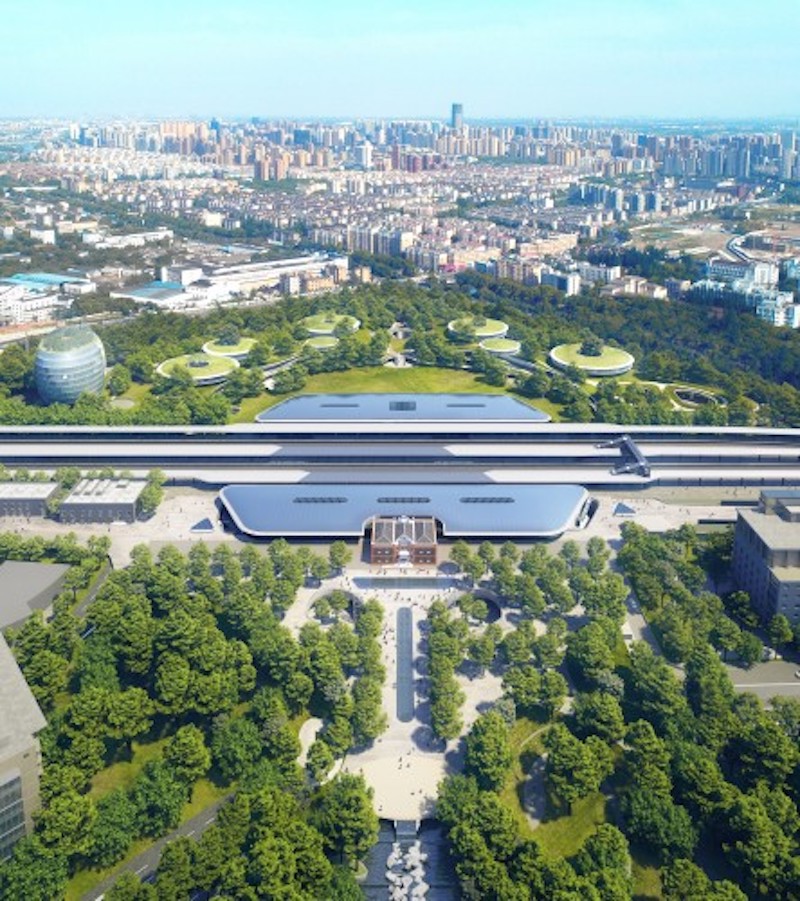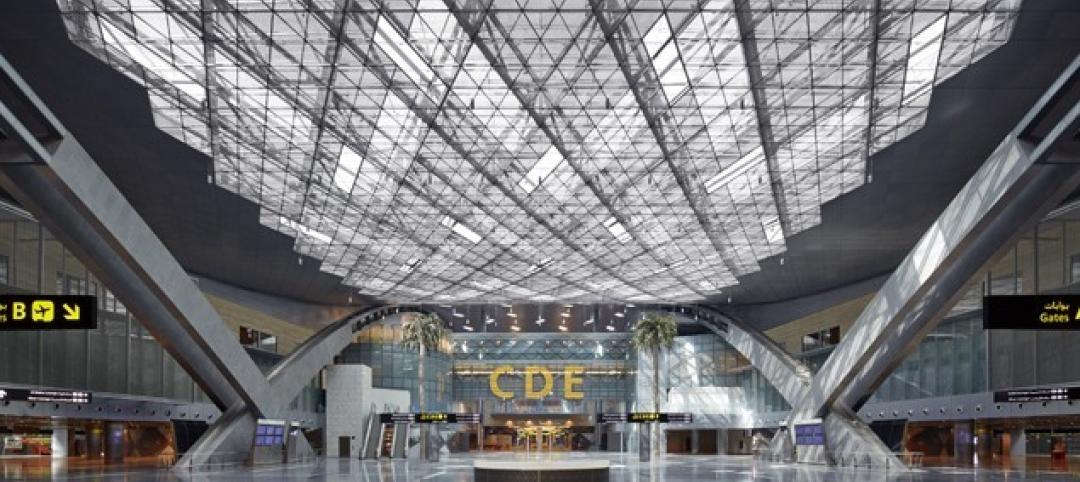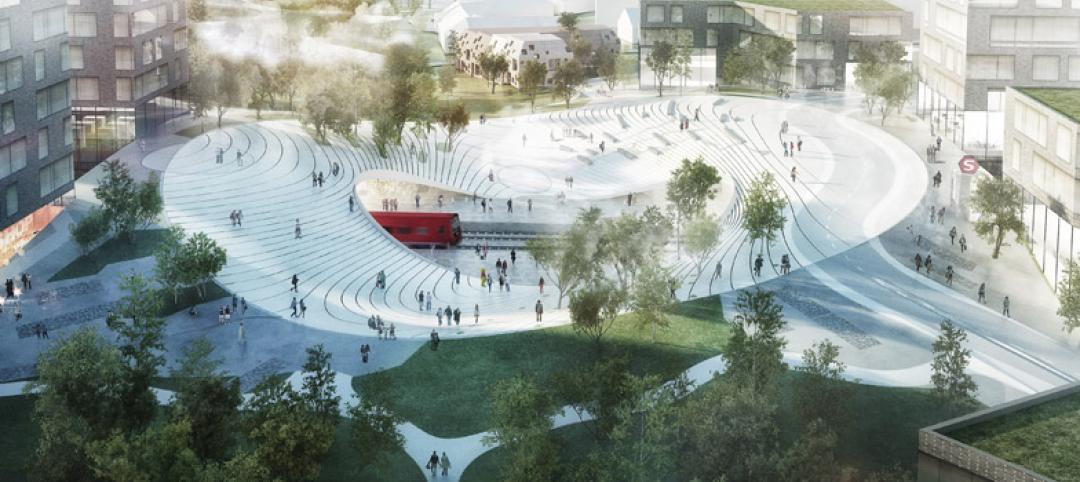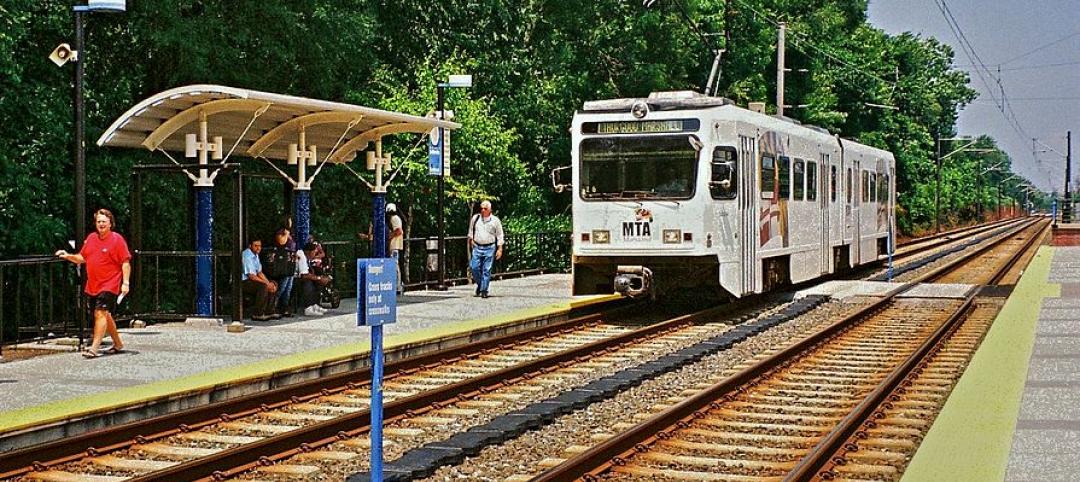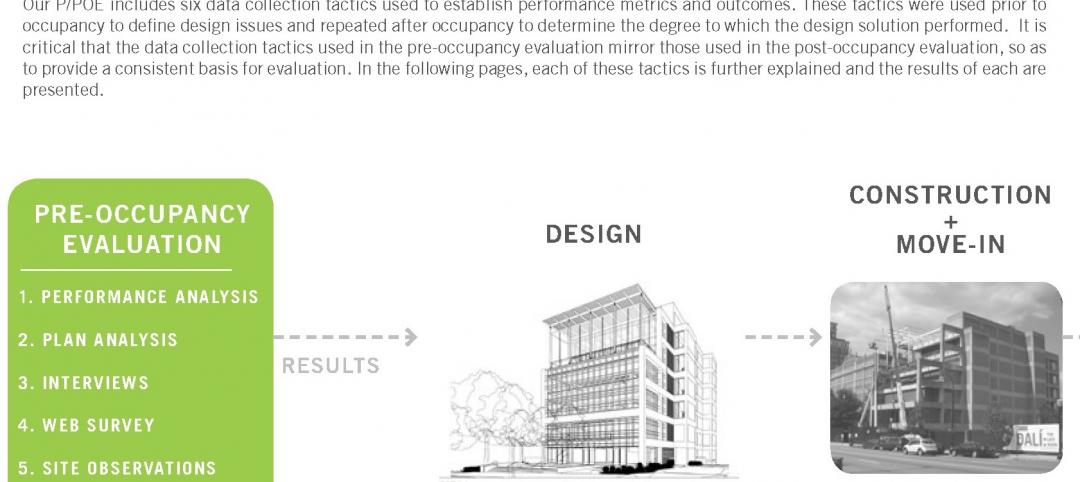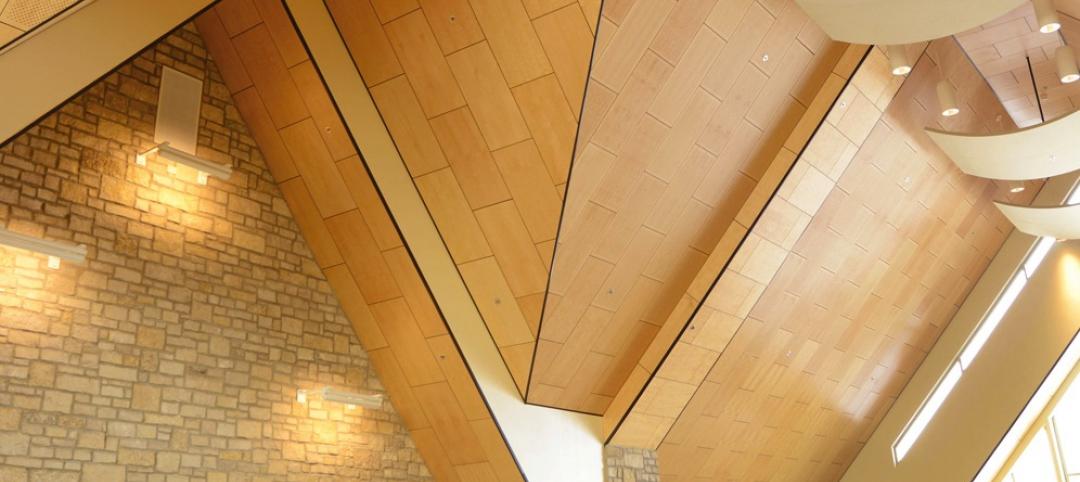MAD Architects has unveiled the “Train Station in the Forest,” a new project that covers an area of 35.4 hectares and will encompass the Jiaxing Train Station, the plazas to the north and south, and a renovation of the adjacent People’s Park. The completed project will become a new green urban center for Jiaxing’s citizens and travelers.
MAD’s design includes a 1:1 rebuilding of the historic station building (destroyed in 1937) derived from archival studies, while creating a new train station underground. MAD engaged with scholars, consultants, and experts in heritage architecture to recover data to help aid the project. Upon completion, the rebuilt old station building will become the Jiaxing Railway History Museum.
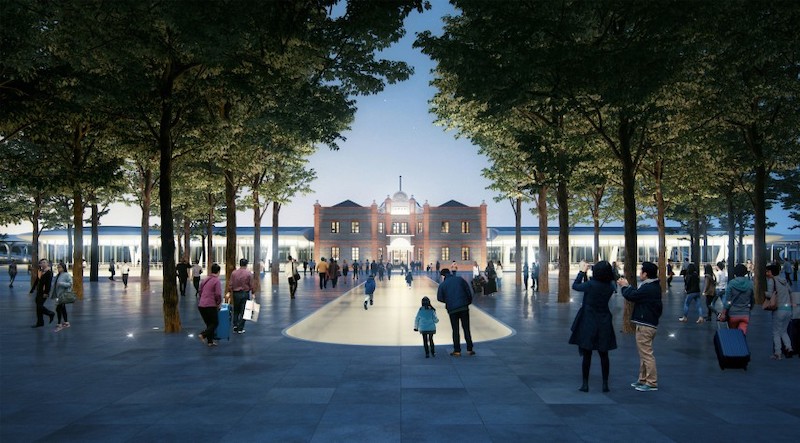
The new station will be bright, efficient, and human-scaled. Natural light will create a friendly, comfortable environment. The main transportation and commercial functions will be located in the basement level, allowing for ground-floor space to be given back to nature.
The people’s Park will radiate through the scheme into the city and form an urban oasis. A careful consideration to landscape and massing has formed an axis with the reconstructed old station building at its core. In front of the station, a large collection of canopy shaped trees has been planted, creating comfortable, natural shades for the plaza. Upon completion the scheme will become a borderless park where citizens and travelers can dwell and enjoy the natural environment.
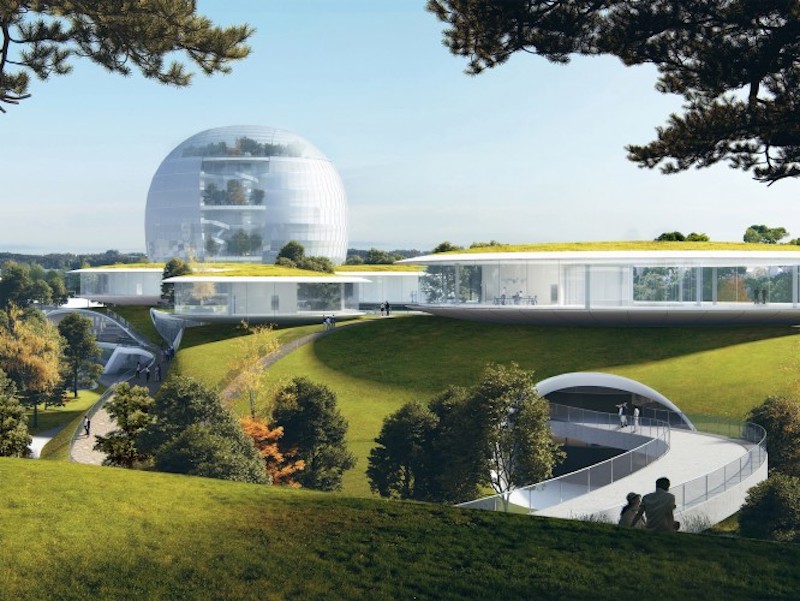
The rebuilt train station building and the ‘floating’ metal roof of the new station will blend with the forest trees. The station concourse, platforms, and waiting hall are hidden underground so the building’s single-story height above ground level respects the scale of the old station building. The underground areas will be flooded with natural light thanks to skylights and glass curtain walls on the ground floor
As people move from the waiting hall to the platforms via a futuristic underground tunnel they will be able to see the rebuilt old station building overhead creating a sharp contrast between the past and the future.
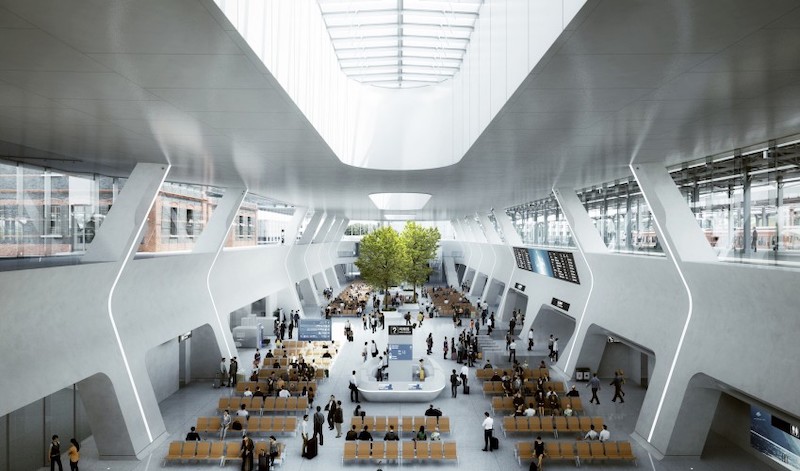
Sunken courtyards will connect the underground commercial space with the parkland above. On the roof of the new station, solar photovoltaic panels will enhance the project’s sustainability. To the south of the station a new above-ground commercial area will be enclosed by landscaped public lawns that can host a variety of events, festivals, concerts, or markets.
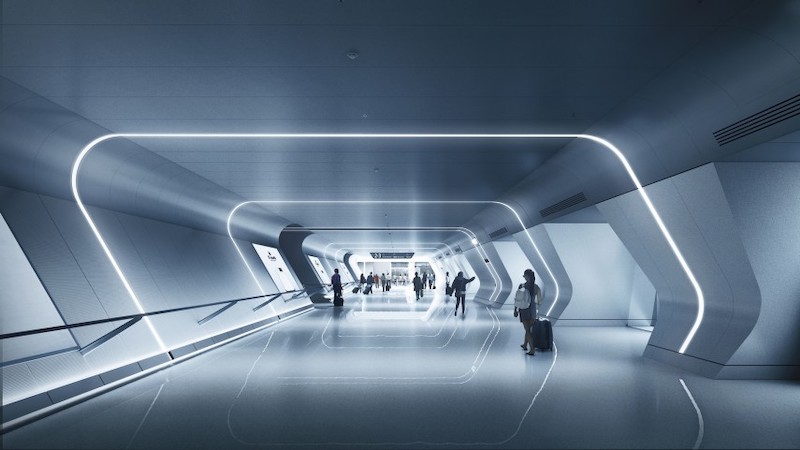
Bus terminals, a tramway, metro, car parking, and taxi stands are interconnected by the scheme, creating an efficient transportation portfolio accessed from the train station. In total, the capacity of the train station will be upgraded to three platforms serving six tracks, as opposed to the previous three platforms serving five tracks. The overall passenger capacity is expected to reach 5.28 million people per year, with peak-time capacity reaching 2,300 people per hour.
Train Station in the Forest is slated for completion by July 1, 2021.
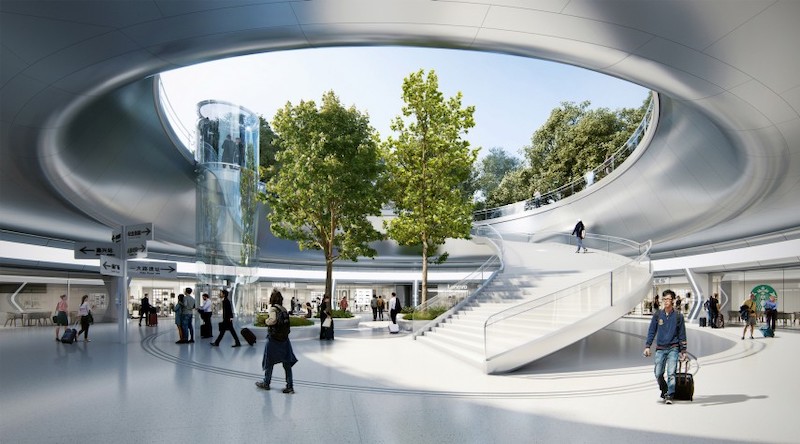
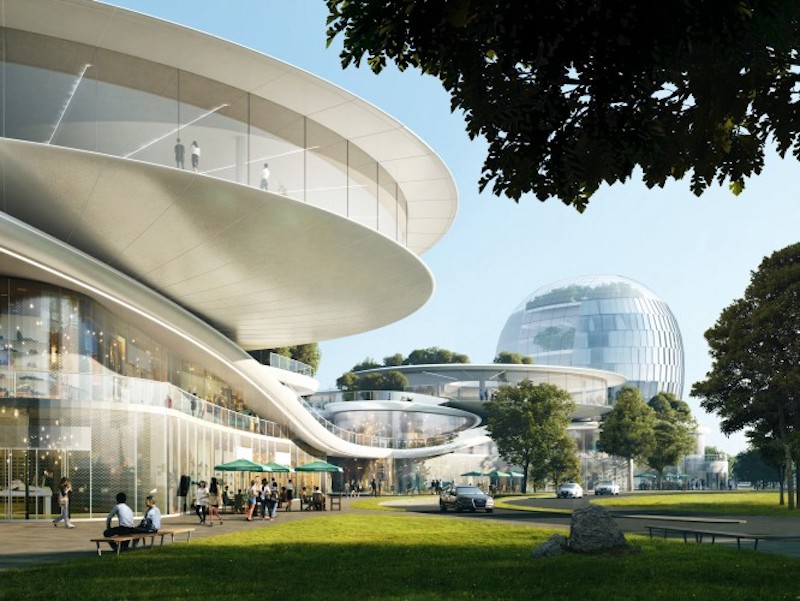
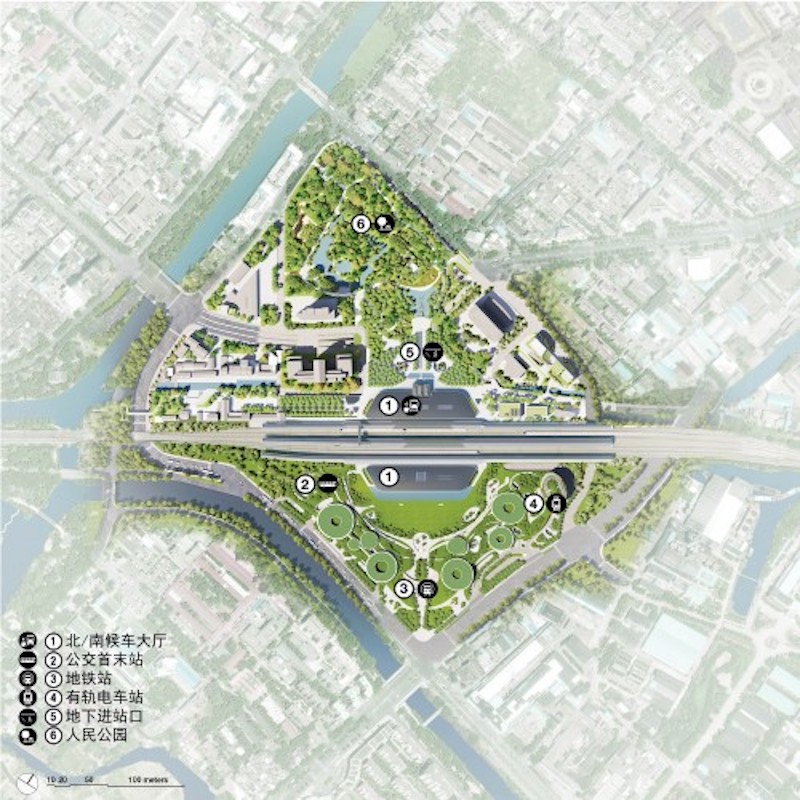
Related Stories
| Dec 28, 2014
The future of airport terminal design: destination status, five-star amenities, stress-free travel
Taking a cue from the hospitality industry, airport executives are seeking to make their facilities feel more like destinations, writes HOK's Richard Gammon.
| Nov 18, 2014
New tool helps developers, contractors identify geographic risk for construction
The new interactive tool from Aon Risk Solutions provides real-time updates pertaining to the risk climate of municipalities across the U.S.
| Oct 16, 2014
Henning Larsen Architects to design train station for planned Danish town
Danish firm Henning Larsen Architects won Frederikssung municipality’s architecture competition for a regional train station in the planned city of Vinge—Denmark’s largest urban development.
| Oct 16, 2014
Perkins+Will white paper examines alternatives to flame retardant building materials
The white paper includes a list of 193 flame retardants, including 29 discovered in building and household products, 50 found in the indoor environment, and 33 in human blood, milk, and tissues.
| Oct 15, 2014
Harvard launches ‘design-centric’ center for green buildings and cities
The impetus behind Harvard's Center for Green Buildings and Cities is what the design school’s dean, Mohsen Mostafavi, describes as a “rapidly urbanizing global economy,” in which cities are building new structures “on a massive scale.”
| Oct 12, 2014
AIA 2030 commitment: Five years on, are we any closer to net-zero?
This year marks the fifth anniversary of the American Institute of Architects’ effort to have architecture firms voluntarily pledge net-zero energy design for all their buildings by 2030.
| Oct 3, 2014
New survey tracks Americans’ attitudes towards transit use
A record 10.7 billion rides were taken on public transit in the United States last year. And a national survey of Americans finds that the speed, reliability, and cost, more than any other factors, determine people’s willingness and frequency of use.
| Sep 24, 2014
Architecture billings see continued strength, led by institutional sector
On the heels of recording its strongest pace of growth since 2007, there continues to be an increasing level of demand for design services signaled in the latest Architecture Billings Index.
| Sep 22, 2014
4 keys to effective post-occupancy evaluations
Perkins+Will's Janice Barnes covers the four steps that designers should take to create POEs that provide design direction and measure design effectiveness.
| Sep 22, 2014
Sound selections: 12 great choices for ceilings and acoustical walls
From metal mesh panels to concealed-suspension ceilings, here's our roundup of the latest acoustical ceiling and wall products.


